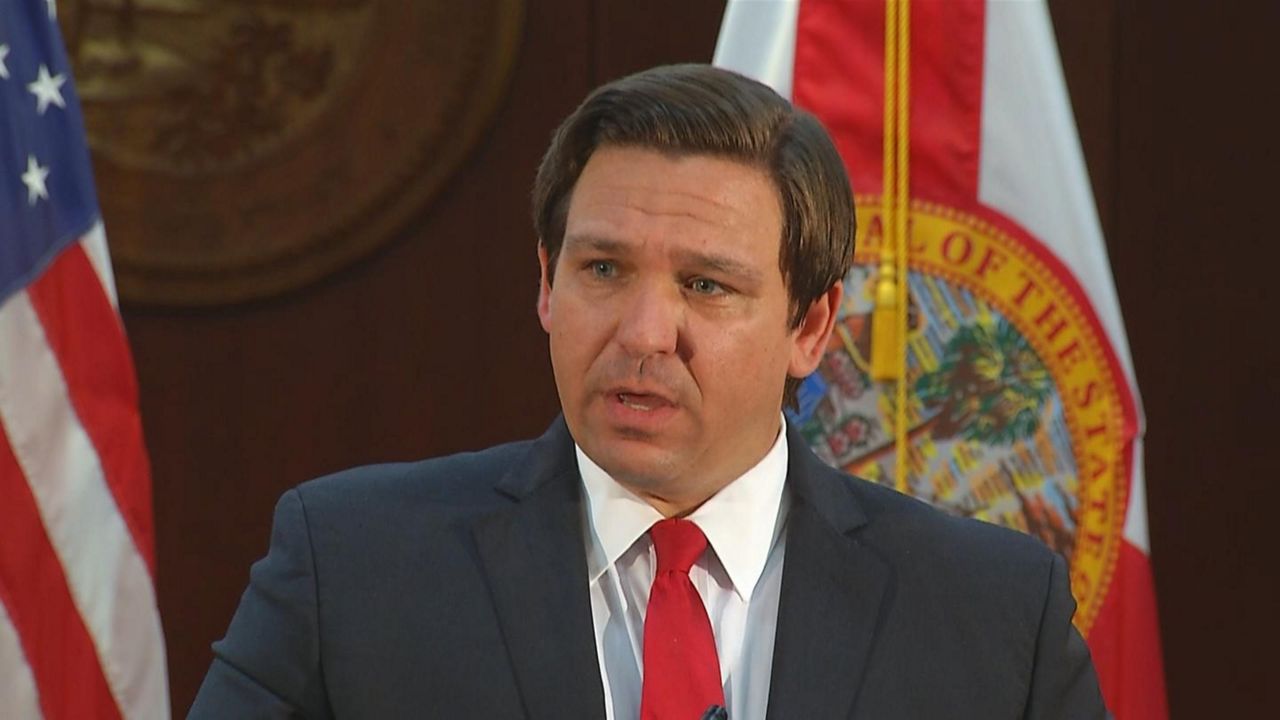ST. PETERSBURG, Fla. — Gov. Ron DeSantis finally responded on Wednesday night to a request from all 67 supervisors of elections across Florida for flexibility in how they administer elections in advance of the August 18 primary.
What You Need To Know
- Order allows state workers to take administrative leave to get trained and serve as a poll worker
- Order encourages school districts to close schools on Primary and General Election Days
- Read the full Executive Order here
- More 2020 Elections stories
The supervisors said that in dealing with the coronavirus pandemic, they needed to able to make some changes to overcome the various challenges that the health crisis presents in providing for a fair election.
The executive order spells out five changes:
- Allows Supervisors of Elections to begin canvassing vote-by-mail ballots earlier than the 22 days before the election that is the current law. County canvassing boards can begin canvassing those ballots upon completion of the public Logic & Accuracy Testing tabulation of equipment.
- Allows state workers to be allowed administrative leave to get trained and serve as a poll worker.
- Requires that all SOE’s shall ensure proper social distancing and cleaning procedures are implemented for Early Voting and Election Day. That includes spacing out voting stations, using physical barriers for poll workers interacting with voters, providing personal protective equipment to poll workers and making hand sanitizer and other cleaning products readily available.
- Encourages school superintendents to close all K-12 schools for the August 18 primary and November 3 general election.
- Calls on SOE’s to “timely provide notice” regarding any changes in voting locations or procedures.
The original inquiry calling on DeSantis to allow for these changes came from Tammy Jones, the president of the Florida Association of Supervisors of Elections, back on April 7. It asked that the governor give the counties the ability to begin early voting a week earlier than allowed in current law and to use those early voting centers on Election Day. DeSantis did not grant that request.
A follow-up letter was sent on May 13 by Jones’ successor in leading the state supervisors of election, Hillsborough County Supervisor of Elections Craig Latimer. He asked for DeSantis to “act immediately” to address the recommendations request.
Latimer also expressed concern in that letter that the state was lagging behind most of the country in securing federal dollars from the CARES Act. That request was ultimately made by Secretary of State Laurel Lee in mid-May.
Not all supervisors of election were that excited about the governor’s executive order.
“Overall, it really doesn’t do much of anything,” says Lori Edwards, the Democratic Supervisor of Elections in Polk County. “There is a lot of encouraging and recommending and a little bit of facilitating, but there’s actually only one item there that election offices have not already been doing.”
That would be allowing for more time to count vote-by-mail ballots.
Dustin Chase, a spokesman for Pinellas County Supervisor of Elections Julie Marcus, says that provision “is really big.”
“With social distance concerns, we have to spread out the number of people who are opening the ballots, separating them from the certificate envelope and the secrecy sleeve,” he said. “This will give us the ability to extend the amount of time and hopefully process all the mail in ballots by the required legal deadline.”
Another measure that SOEs are pleased about is the provision that allows state workers to work on Election Day. Several local supervisor of elections offices reported hundreds of poll workers declining to work on the Presidential Preference Primary in March because of concerns about contracting COVID-19.
